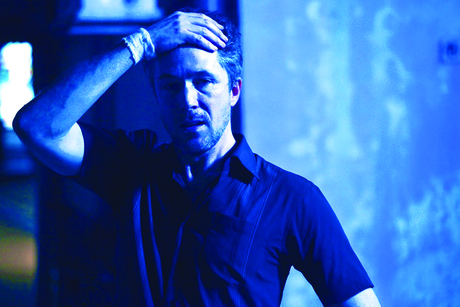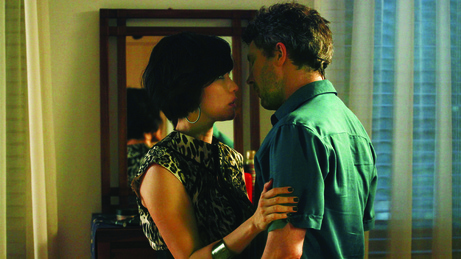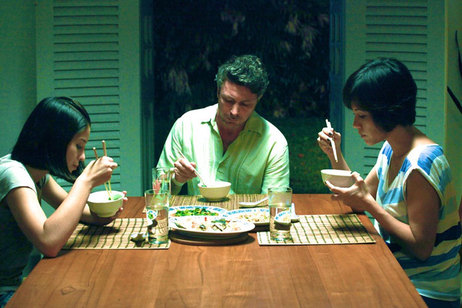|
The dark, mysterious and enigmatic narrative of Mister John follows Gerry Devine (Aidan Gillen) on his journey from the UK to Singapore to visit his recently deceased brother, John. Leaving his cheating wife and young daughter behind, Gerry travels across the world to pay his last respects to his sibling. On arrival, Gerry quickly falls into a world of corruption, salaciousness and defilement.
His brother’s bar provides the backdrop for much of the film, acting as a metaphor for the colliding worlds of Gerry’s own life and his brother’s. The bar is a haven for prostitution and lust, where inebriated westerners rub shoulders with Singaporean men who solicit young women. Gillen’s performance is beautifully understated and his character’s derelictions are masterfully portrayed. Initially resisting the temptations and advances, Gerry slowly begins to embrace his brother’s lascivious lifestyle and starts to question the merits of his own existence. Recently bereaved and coming to terms with his wife’s infidelities, Gerry’s self-examination makes for an emotional and turbulent spectacle. His existential crisis is exacerbated by the constant presence of enticing local prostitutes and his growing attraction to his late brother’s wife Kim (Zoe Tay). Films dealing with the complexities of adultery and the disingenuous nature of monogamy are often susceptible to cliché and a regurgitation of the same stories. But Mister John is unique in several ways and manages to avoid the usual pitfalls of banality that many of its comparable counterparts fall victim to. It refuses to adapt the vengeance-driven narrative so common in films dealing with infidelity such as Peter Greenaway’s brilliant The Cook, The Thief, His Wife and Her Lover (1989). The film’s location adds a new dimension to the narrative and the cinematography but it also helps to excavate the protagonist’s strife and inner conflict. Stunning shots of the tranquillity and majestic landscape are contrasted with the gritty, austere scenes of downtown Singapore and are a constant reminder of Gerry’s conflicting emotions of devotion and desire. The almost allegorical aspects of the location and motivations of the characters make dealing with unscrupulous actions interesting and engaging and it tastefully avoids crass evaluations of Gerry’s decisions. The inner arbitration experienced by Gerry slowly winds its way through various obstacles and his emotional turmoil seems relentless as he tries to make sense of his surroundings and options. In one particularly memorable scene, Gerry is involuntarily acquainted with a young Asian prostitute who insists on staying the night in his hotel. She tries to entice Gerry into bed and seems to be genuinely attracted to him. His declination is an early indicator that his motives are earnest and his intentions are not to engage in anything untoward. However, as his character grows, his decisions are less chivalrous and the character begins to change. Following the journey of a seemingly mild mannered husband grieving for his brother and fulfilling the honourable duties of a conscientious sibling, to a conflicted man with a propensity to violence and imprudent copulation is an interesting and thought provoking piece. The film offers an interesting insight into a rather unusual mid-life crisis and the performances, cinematography and narrative ensure that it is entertaining and engaging throughout. Gerry’s intentions are ultimately hidden and it is left for the viewer to decide for themselves, including the rather surreal ending. Mister John offers an engrossing 95 minutes of technical and aesthetic quality. Read our interview with the directors here |
|





